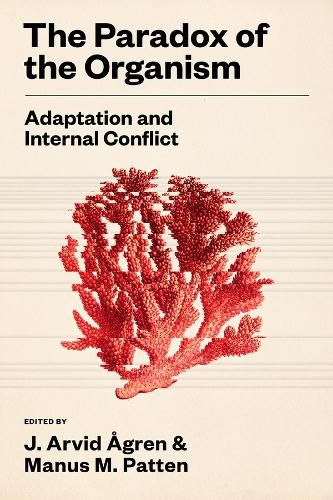Readings Newsletter
Become a Readings Member to make your shopping experience even easier.
Sign in or sign up for free!
You’re not far away from qualifying for FREE standard shipping within Australia
You’ve qualified for FREE standard shipping within Australia
The cart is loading…






Leading evolutionary theorists and philosophers come together to understand how organisms persist, even as they're riddled with internal conflict, from cancer cells to selfish genes.
How does a vast menagerie of organs, tissues, cells, and genes coalesce to form a unified organism? For centuries, biologists and philosophers have taken this astonishing feat for granted, treating it as a matter of divine will or evolutionary inevitability. Yet unity is hardly assured. From cancer cells to selfish genes, the body is riven by internal conflicts.
The Paradox of the Organism grapples with this puzzle. As the essays in this collection show, profound questions arise when we pierce the organismal veil and consider the self-replicating elements within. Is an organism really a cohesive agent that adapts to the ecosystem it inhabits? Or is an organism itself an ecosystem, within which individual components are engaged in a continuous arms race?
The answers have immediate implications: for understanding miscarriage, treating cancer, improving psychological health, and preserving biodiversity. Challenging fundamental precepts of evolutionary theory, The Paradox of the Organism offers an incisive account of life's extraordinary success.
$9.00 standard shipping within Australia
FREE standard shipping within Australia for orders over $100.00
Express & International shipping calculated at checkout
Leading evolutionary theorists and philosophers come together to understand how organisms persist, even as they're riddled with internal conflict, from cancer cells to selfish genes.
How does a vast menagerie of organs, tissues, cells, and genes coalesce to form a unified organism? For centuries, biologists and philosophers have taken this astonishing feat for granted, treating it as a matter of divine will or evolutionary inevitability. Yet unity is hardly assured. From cancer cells to selfish genes, the body is riven by internal conflicts.
The Paradox of the Organism grapples with this puzzle. As the essays in this collection show, profound questions arise when we pierce the organismal veil and consider the self-replicating elements within. Is an organism really a cohesive agent that adapts to the ecosystem it inhabits? Or is an organism itself an ecosystem, within which individual components are engaged in a continuous arms race?
The answers have immediate implications: for understanding miscarriage, treating cancer, improving psychological health, and preserving biodiversity. Challenging fundamental precepts of evolutionary theory, The Paradox of the Organism offers an incisive account of life's extraordinary success.